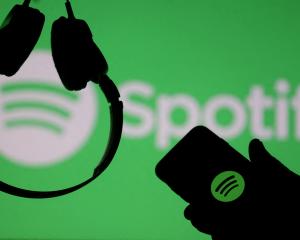China's Great Firewall is still blocking the services of Facebook, Google and Twitter, but that hasn't stopped top brass from all three Silicon Valley firms from visiting Beijing in a span of less than 10 days, perhaps hoping to boost their business prospects on the mainland.
Following in the footsteps of Facebook CEO Mark Zuckerberg - who gave a much-discussed speech in Chinese late last month at Tsinghua University - senior executives from Google and Twitter made appearances in Beijing on Monday (local time), attending a technology conference hosted by San Francisco-based TechCrunch.
"In fact, we do hope to provide service in China, and we continue to communicate with the Chinese government. This is also why I'm here this week," said Eric Schmidt, executive chairman of Alphabet/Google, according to a Chinese-language transcript of his remarks provided by organisers.
He added that the company has "always been in touch with the Chinese government" and that Chinese officials had visited Google offices in California in the past.
When Google decided to abandon the Chinese search market because of censorship and hacking concerns and move its servers to Hong Kong in 2010, it kept about 500 employees on the mainland who are mainly responsible for selling Google's ad services to Chinese companies looking to reach consumers overseas.
Google recently revealed its first direct investment into a Chinese startup since its 2010 exit, putting an undisclosed amount into Mobvoi, an Android voice search software. And it has partnered with Chinese hardware maker Huawei on a new phone.
Google co-founder Sergey Brin obliquely suggested in recent remarks to The Wall Street Journal that some business units of Alphabet (as Google's corporate structure has recently been renamed) could move into unnamed countries ahead of others.
Helping Chinese companies to "go out," echoing the Chinese government's campaign of promoting Chinese businesses globally, has been the business strategy for Facebook and Twitter as well.
Numerous Chinese firms, including smartphone makers, airlines, the Communist Party mouthpiece People's Daily and the official New China News Agency, have set up official accounts on both Facebook and Twitter - in English and Chinese - to reach out to audiences abroad.
"One of our clients is the New China News Agency," said Alan Lan, head of online sales, greater China, at Twitter, during a panel meeting Monday morning.
"During the National Day holiday in October, we helped them with a lot of their global communications."
So far, though, that seems to have earned Twitter little goodwill.
Facebook has also tried a kill-with-kindness approach. When Chinese President Xi Jinping visited the U.S. in September, Facebook set up a special page dedicated to document Xi's every move stateside. After dining with the Chinese president at a White House banquet in Washington, Zuckerberg delivered a 22-minute speech at Tsinghua University last week, showing his progress in Mandarin, which he's been studying for about five years.
Apple's massive sales growth in China has underscored how valuable the Chinese market can be to US tech firms. Apple posted an 84 percent increase in Greater China sales (which includes Taiwan and Hong Kong) in the last fiscal year, generating $23 billion in operating income in the region, the company said last week. And Apple said in its annual securities filing that 96 percent of Greater China sales are derived from the mainland alone.
Twitter has recently struggled to demonstrate user growth - and is unable to tap the Chinese market. CEO Jack Dorsey announced last month that the company planned to lay off approximately 8 percent of its work force, or more than 330 employees.
Experts say lack of access to the Chinese market is costing California tech firms billions a year.
Intelligence agencies in the US have debated whether to find a way to breach China's Great Firewall as a means of retaliating against China for the hacking of official US databases containing of personal information of government personnel, the New York Times reported in July.












